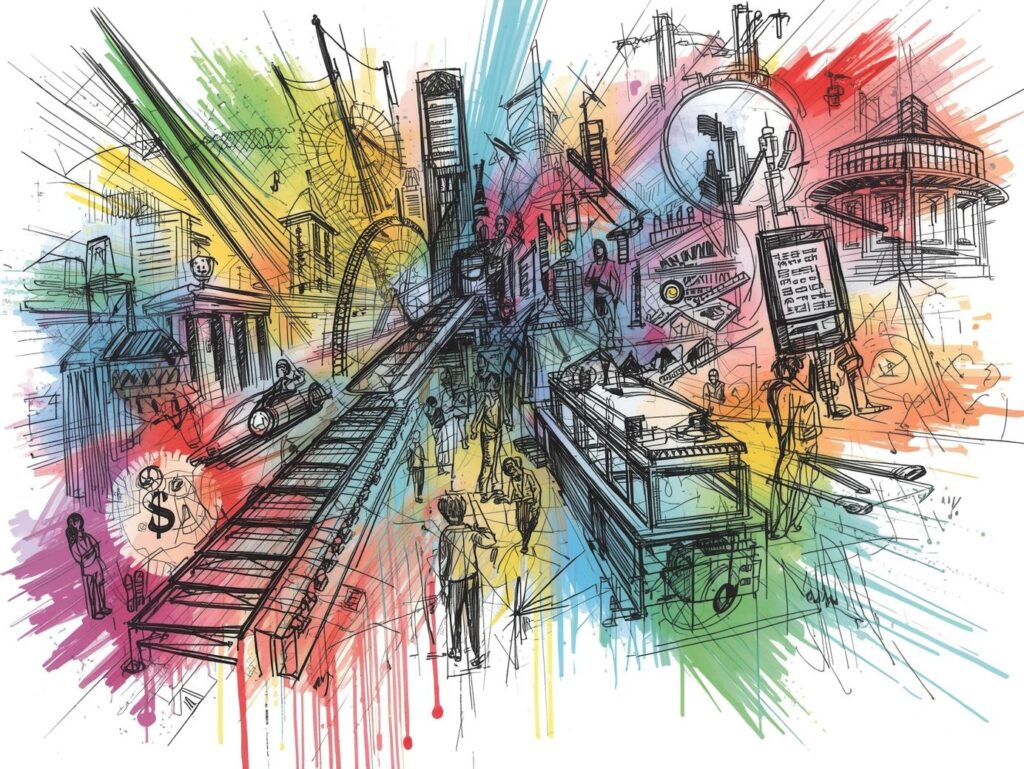Introduction
Blockchain technology, initially developed to support cryptocurrencies, has evolved into a powerful tool for social impact. By providing secure, transparent, and decentralized systems, blockchain can transform finance, governance, and public services, especially in emerging societies where trust, accountability, and inclusion are critical challenges.
Organizations like CHUYA SONCCO are exploring blockchain not just as a technological innovation, but as a mechanism for social empowerment, transparency, and sustainable development.
What is Blockchain?
- Blockchain is a distributed ledger technology that records transactions in a secure, immutable, and verifiable manner.
- Key features include decentralization, transparency, traceability, and smart contracts.
- These properties make blockchain ideal for applications in finance, governance, supply chains, and community projects.

Applications for Social Good
1. Transparent Public Services
- Blockchain can track public spending, procurement, and government projects, reducing corruption and inefficiency.
- Citizens gain the ability to verify resource allocation, enhancing trust in institutions.
- Example: Transparent tracking of education funding in rural schools.
2. Financial Inclusion
- Blockchain enables secure digital wallets, microloans, and peer-to-peer transactions.
- Populations without access to traditional banks can participate in the digital economy.
- Example: Microfinance platforms for women and marginalized communities.
3. Supply Chain and Fair Trade
- Blockchain ensures traceability of products from origin to consumer.
- Promotes ethical practices, fair wages, and sustainable sourcing.
- Example: Tracking coffee, cocoa, or quinoa supply chains in Latin America.
4. Identity and Digital Rights
- Blockchain-based digital identities allow citizens to access services securely.
- Protects vulnerable populations from fraud and ensures rights to education, healthcare, and voting.
5. Charitable Giving and Fundraising
- Blockchain ensures donations reach intended beneficiaries with full transparency.
- Donors can track the impact of their contributions in real time.
- Example: Transparent funding for community health initiatives or disaster relief.
Benefits of Blockchain for Social Good
- Transparency and Trust
- Public records, donations, and supply chains become tamper-proof and auditable.
- Security and Data Integrity
- Decentralization reduces the risk of hacking, fraud, or data manipulation.
- Efficiency and Cost Reduction
- Eliminates intermediaries and reduces administrative costs in public services and finance.
- Inclusion and Empowerment
- Provides access to digital financial services for unbanked and marginalized populations.
- Scalability and Collaboration
- Blockchain networks can connect governments, NGOs, and communities to share data and coordinate actions.
Challenges and Considerations
1. Technical Barriers
- Implementing blockchain requires specialized skills, infrastructure, and ongoing maintenance.
2. Energy Consumption
- Certain blockchain protocols consume significant energy; sustainable alternatives must be prioritized.
3. Regulatory and Legal Frameworks
- Legal clarity is necessary for smart contracts, digital identity, and cryptocurrency usage.
4. Adoption and Literacy
- Communities, governments, and NGOs need training to understand and trust blockchain solutions.
5. Privacy and Ethics
- While transparent, blockchain systems must balance transparency with privacy protections, especially for sensitive data.
The Role of CHUYA SONCCO
CHUYA SONCCO leverages blockchain for social impact and community empowerment through:
- Transparent Governance Initiatives
- Tracking public projects, educational funding, and community programs.
- Financial Inclusion Projects
- Implementing blockchain-based microfinance, digital wallets, and crowdfunding platforms.
- Supply Chain Monitoring
- Ensuring ethical sourcing, fair trade, and sustainability in local industries.
- Digital Identity and Rights Protection
- Providing secure digital identities for vulnerable populations to access services.
- Community Engagement and Education
- Training citizens, youth, and organizations in blockchain applications for social good.
Conclusion
Blockchain is more than a technological innovation—it is a catalyst for transparency, inclusion, and ethical governance. By enabling secure, traceable, and decentralized systems, blockchain empowers communities, governments, and organizations to deliver better services, promote financial access, and strengthen trust in public institutions.
For CHUYA SONCCO, blockchain is a tool to amplify social impact, ensuring that technological advancement benefits all members of society, particularly the most vulnerable. With responsible implementation, blockchain can help build a future of transparency, equity, and sustainable development.





